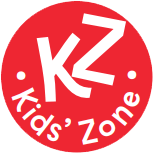Metacognition
"I am really excited to be part of the drive team for Metacognition at Morley Victoria. I believe it is going to make a vast difference to our children." - MV Staff
"The learning journey we have been on so far has been incredibly interesting." - MV Staff
"I am really looking forward to trying this in my classroom, then teaching others to do the same." - MV Staff
"I can't wait to see how the journey continues - it fits so well with our approach to teaching and learning already." - MV Governor

At Morley Victoria we would like all of our young people to be independent and creative learners where active thinking is promoted in every aspect of school life. Developing metacognitive strategies both in and out of the classroom is something we are working on as a school – to start this journey we have identified a ‘Drive Team’ who are working together to shape how we proceed with this and role it out to all stakeholders in the school.
The Drive Team – Mrs Wood, Mr Precious, Mrs Smith, Miss Mapplebeck, Mr Stott, Mr Dougal, Miss Sunter and a member of our governing body.
We have been working with 'Thinking Matters' (https://www.thinkingmatters.com/) to train our drive team and plan a way forward to ensure all staff are fully trained in promoting metacognition in the classroom over the next couple of years. Staff from Morley Victoria have also visited a ‘Thinking Matters Hub School’ to see first hand the benefits this can have to all stakeholders, we are also working with a research school to carry out a project linked to metacognition and pupil premium. We feel that this fits with our Growth Mindset approach to life and our unique Whole Child Approach.
At Morley Victoria, our staff have a secure understanding of how children learn best and we are determined as a school to develop children’s self-awareness skills. Ensuring that our children leave Morley Victoria with a secure understanding of how they learn and can call upon a bank of strategies to support them is integral to us. Research carried out by The Educational Endowment Foundation’s (EEF) on Metacognition underpins our thinking in school. Metacognition is defined as not simply “thinking about thinking”, it is much more complex than this. Metacognition is actively monitoring one’s own learning and, based on this monitoring, making changes to one’s own learning behaviours and strategies. Although a metacognitive approach typically focuses on allowing the learner rather than the teacher to take control of their own learning, this is not to say that our teachers have no role to play. Indeed, our teachers and staff are fundamental to the development of younger pupils’ metacognitive skills. For our pupils to become metacognitive, self-regulated learners, we must:
- Set clear learning objectives.
- Demonstrate and monitor pupils’ metacognitive strategies.
- Continually prompt and encourage our pupils along the way.
Metacognitive skills are developed from an early age, as early as EYFS, and children are encouraged to plan, monitor, evaluate and make changes to their own learning behaviours.
Metacognitive knowledge refers to what pupils know about learning. This includes:
- The pupil’s knowledge of their own cognitive abilities (e.g. “I have trouble remembering my eight times tables”).
- The pupil’s knowledge of particular tasks (e.g. “the spelling of some “-tion” words is difficult”).
- The pupil’s knowledge of the different strategies that are available to them and when they are appropriate to the task (e.g. “If I create a timeline first, it will help me to understand what happened during the First World War”).
Research demonstrates that metacognition must be explicitly taught; at Morley Victoria, we recognise they are not innate skills – and our children need lots of support from the teacher if they are to develop these skills.
Our teachers are fully trained and will make the children aware of what metacognition is and can model the skills explicitly so that children can learn from the masters. We model being metacognitive through the context of the lesson rather than stand-alone teaching as research supports this approach.
We have had training with Thinking Matters about high quality questioning in the classroom and then how we can use this within thinking frames as a tool to display the children's thinking and learning in the classroom. We believe thinking frames are going to be powerful tools for the children at Morley Victoria.
We are very much at the start of this journey but are looking forward to adding this element into our curriculum and developing the ‘Morley Victoria Meta Learner’.






















